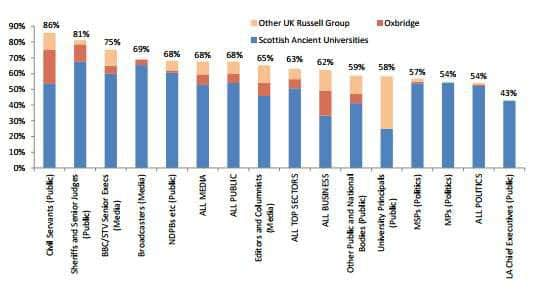Privately educated Scots dominate top jobs


The “Elitist Scotland” report has analysed the background of almost 850 leaders in Scottish media, politics, business and areas of public life.
It found that almost half (45 per cent) of all Scottish judges were privately educated, with 32 per cent of high-ranking media professionals also receiving their education at non-public establishments.
Advertisement
Hide AdAdvertisement
Hide AdThe lowest proportion of privately-educated professionals considered in the report - at 28 per cent - was recorded for Scotland’s top business leaders.


Report commissioner Alan Milburn said: “It is both a wake-up call and a call to arms - to focus as much on helping people move up in society as on helping them off the bottom of society.
“Action is needed on both fronts if social justice is truly to be the motif for this nation.”
In addition, those examined were revealed to predominantly be the alumni of the Scottish ancient universities of St Andrews, Glasgow, Edinburgh and Aberdeen.
Elitist Scotland is the regional follow-up to the Elitist Britain report, arguing that “while those at the top of Scottish public life are somewhat more representative of the rest of the population than the British establishment is, those educated at independent schools and at a handful of highly selective universities are still massively over-represented.”
A positive finding of the report is that career limitations imposed by social background are less prevalent in Scotland than in Britain.
Despite this, it still found the elites in each field to be largely unrepresentative of the people below them, with 23 per cent of elites educated at a private secondary school compared to 5 per cent of the general Scottish population as a whole.
The Commission is an advisory non-governmental public body, with the “Elitist Scotland” research carried out by University of Edinburgh postgraduate students and the David Hume Institute.